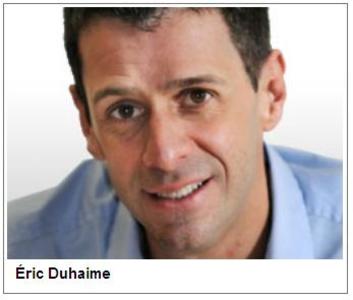The Quebec government presented its 2011-12 budget last week. The most indebted, taxed and unionized province could have used the exercise to downsize the role of the state, cut public expenditures and lower taxes.
Instead, the government led by Jean Charest chose to keep its "lead" by increasing taxes, fattening the debt and creating a dozen new programs, organizations and public funds.
Last year, the government spent $700 million more than it planned in its budget, and over the next 12 months, expenses will be up by 3.7%. On health care alone, the government just can't get the explosion of costs under 5% yearly, which is almost three times bigger than Quebec’s economic growth.
When you cannot control your outcome, you need to boost your income. The Quebec Liberals are increasing the PST by 1%, increasing Pension Plan premiums by 0.9%, increasing the gas tax, increasing tuition fees by $325 a year for the next five years, imposing a new health tax of $100 per person this year and $200 next year and increasing the provincial debt with another deficit of $3.8 billion.
But it's still not enough. The "rest" will need to come from our generous neighbours in the "Rest" of Canada (ROC).
To make sure Quebec also keeps its title of most dependent province in the country, the Quebec Ministry of Finances prepared a special 52-page appendix to its budget called "Update on Federal Transfers." The document contains two main sections: One about how to get more for Quebec from "fiscal federalism in Canada" and another one on how to compensate Quebec for the sales tax harmonization.
The whole thing could be rebranded "How to keep on squeezing more milk out of the old ROC cow."
Since the major federal transfers to the provinces are expiring in 2014, Quebec is already preparing for the round of negotiations of the renewal of these transfers — Canada Health Transfer (CHT), Canada Social Transfer and particularly equalization.
Right in the introduction of the document, it warns those who think "equalization is weighing on the economies of so-called 'productive' provinces and rewarding so-called 'unproductive' provinces" saying "these criticisms are based more on opinion than on facts."
The "facts" for the Quebec government outlined in the document are all arguments to debunk every single criticism and justify more money to the poor belle province:
First, we get more because we pay more. Believe me on that one; we do pay MUCH more taxes. English Canadians must stop complaining that Quebec provides a higher level of public services than the ROC — $7 a day public kindergarten, parental leaves or drug insurance, for example.
If Quebec applied Alberta's tax system in 2010, it would collect $5.2 billion less in personal income tax and $11.7 billion less in sales tax.
The second main "fact" is Quebec doesn't earn enough revenue from natural resources and those who exploit them should then share via equalization payments. This comes from the Charest government that recently imposed a moratorium on the exploitation of shale gas and is more prone to listen to environmentalist activists than business developers.
It keeps going on and on but you get the idea. Poor Quebec just can't go on a diet and English-Canadians need to pay the bill for its left-leaning fast food.
— Duhaime is a freelance writer
Fat cat Quebec still begging for more
Budget 2011-2012 - mars 2011

Éric Duhaime17 articles
Consultant auprès de partis politiques marocains et mauritaniens et ex-conseiller politique de Mario Dumont


























Laissez un commentaire Votre adresse courriel ne sera pas publiée.
Veuillez vous connecter afin de laisser un commentaire.
Aucun commentaire trouvé